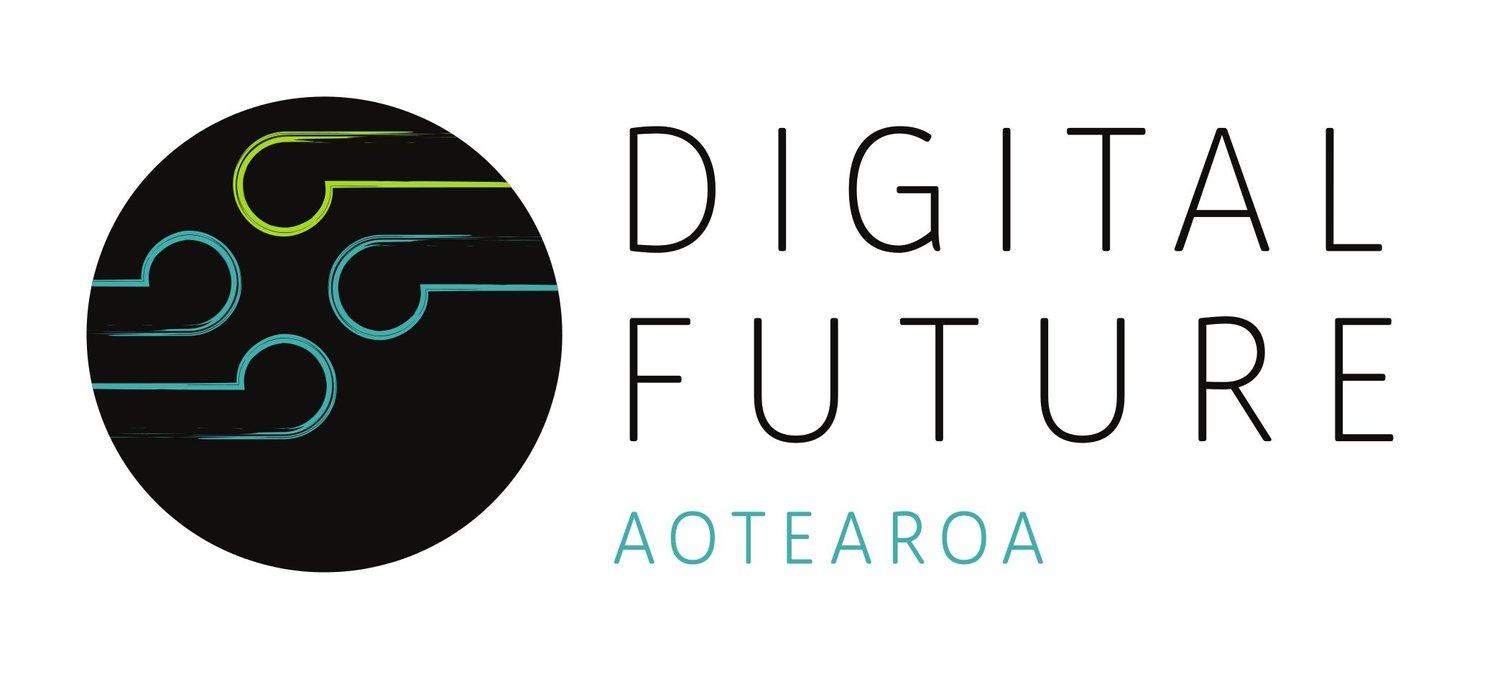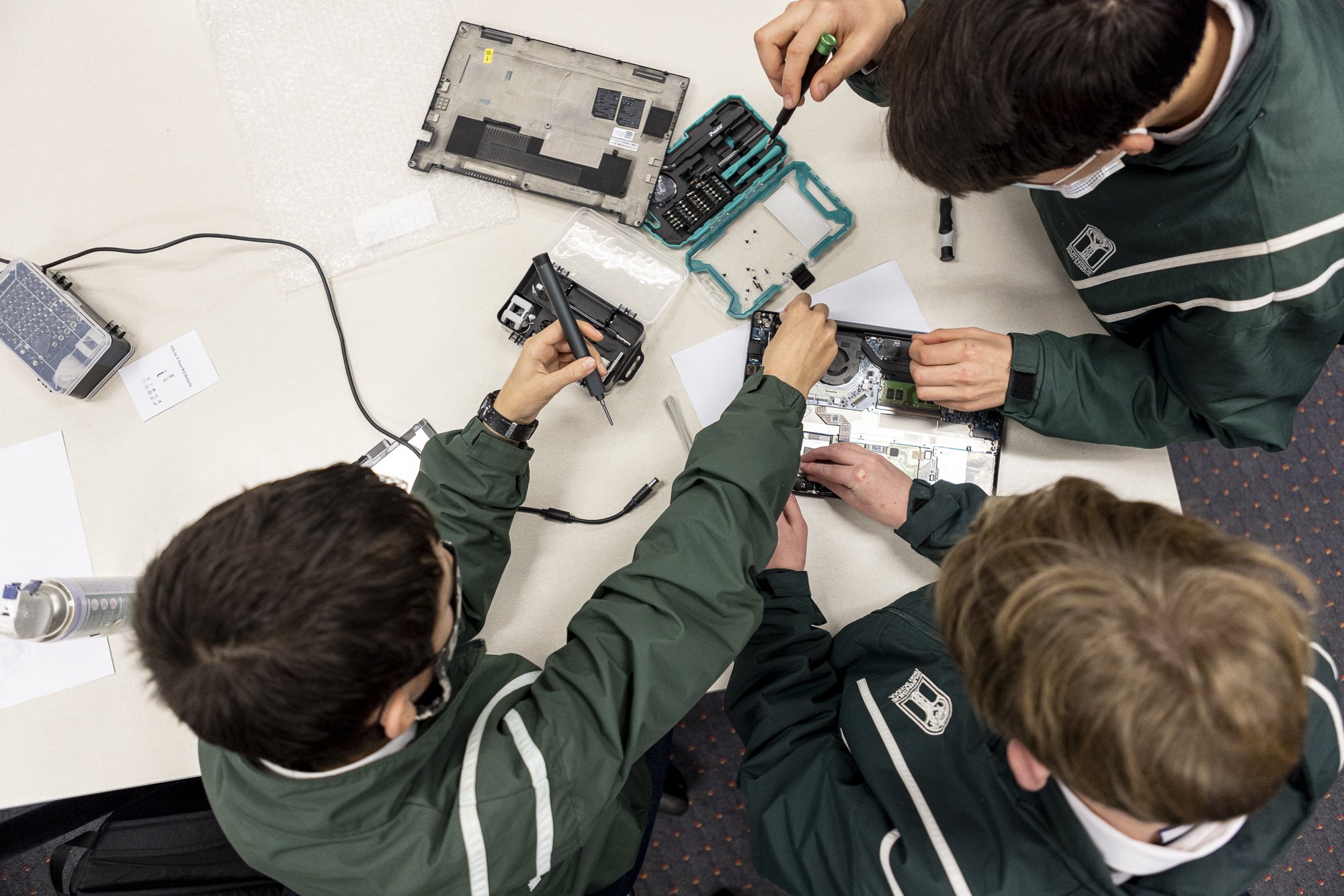It Takes a Village: Our Recycle A Device Ecosystem
Teamwork makes the digital equity dream work.
Let it be said that bridging the digital divide is not something we can achieve alone. Nā tō rourou, nā taku rourou ka ora ai te iwi: with your food basket and my food basket the people will thrive.
Recycle A Device works within an ecosystem—an entire community of other people, groups, and organisations who fill gaps and help us to get resources from where they are not needed to where they are, educating and upskilling people along the way.
In this post, we’re shouting out those who make it possible, while giving an idea of the mahi it takes to collect laptops, repair them, and pass them on. To paint the picture, we’ll map out the key players of the RAD ecosystem in Ōtautahi and wider Canterbury area.
Our funders: making the mahi happen
Organising, overseeing, advertising, connecting, and project managing an initiative like Recycle A Device requires both manpower and resources. While we do have wonderful volunteers doing a lot of the mahi, there is also a team of employees who keep things ticking over.
Long story short, RAD needs funds to survive—and we are very lucky to have some faithful funders. These include:
Rātā Foundation: this amazing organisation exists to fund programmes that empower people to thrive. We are lucky to be counted in that category!
Canterbury Councils. RAD receives funding from the Christchurch City Council, Ashburton District Council, and Canterbury Waste Joint Committee.
Our donors: providing the goods
We are always grateful for the corporations and people who pass on their used laptops with chargers to Recycle A Device instead of adding to the e-waste problem in Aotearoa. To provide an example, here are some local companies who donate in Canterbury:
Chris from Seamless dropping into the DFA office with a stack of laptops.
It’s common for companies to upgrade their devices regularly. With few good options for disposing of electronics, often the old ones end up in a landfill or lingering in a dusty storage closet. Partnering with RAD is beneficial for our donors: it’s an easy solution to the e-waste issue and it’s also a tick in the box towards their efforts in both sustainability and social good.
Our RAD clubs: repairing and upcycling
The next cog in the machine that is a Recycle A Device ecosystem is, of course, the clubs of rangatahi who hone new tech skills and repair the donated laptops ready to be gifted to those in need. Upskilling and upcycling in one go!
In the Ōtautahi ecosystem, there are RAD clubs at:
Christchurch Boys High School (our most prolific Christchurch club)
Te Aratai College
Mt Hutt College
Burnside High School
Hornby High
Riccarton High
Hillmorton High
Hagley Adult Literacy Centre
TechMate
Find out more about our student groups in this Stuff article, and our partnership with TechMate here. Our RAD clubs are such a key aspect of the recycling devices process, and we are so thankful to the network of people willing to provide training and oversight—as well as to the wonderful rangatahi who spend their time learning and repairing.
““In our collaboration with DFA we managed to distribute over 400 devices to much-needed Pasifika households and families. Taught over 145 Pasifika participants to diagnose and repair old and outdated laptops.””
Gifting hubs: distributing the goods
A final and very important step is to distribute the laptops to those who need them—and this can be trickier than it sounds! For this, we rely on organisations with an ear to the ground in their communities; people and groups who work with or encounter those in need of devices and can distribute them discerningly.
These are some of the local gifting hubs:
Linwood Library & The Loft: This hub generally receives laptops refurbished by Christchurch Boys’ High School. The Loft, a community wellbeing service, identifies clients in potential need of a device and the library makes the connection, ensuring they not only receive the laptop but get any support required to use it. This news clip includes an interview with librarians discussing how it works.
Tagata Moana Trust: This well-connected trust is a hub for the Pacific community in Ōtautahi, making them an ideal RAD partner. Through TMT, we’ve been able to connect with various churches and initiatives who need what we can offer. Their director Nina Oberg Humphries says: “In our collaboration with DFA we managed to distribute over 400 devices to much-needed Pasifika households and families. Taught over 145 Pasifika participants to diagnose and repair old and outdated laptops.”
Ashburton Library: In addition to distributing laptops, this library is host to a RAD club with students from Ashburton College. There is massive need for devices in the Ashburton area, and their own club can’t always keep up—so we supplement with laptops from elsewhere.
Ara: This vocational training institute runs school holiday pathways programmes for Māori and Pasifika high school students looking into tertiary education options. During these programmes we run our Fix 1 Keep 1 workshop to ensure the students have a laptop to make tertiary study easier.
Laptop refurbishment with Tagata Moana Trust in progress at the Fale Eke Pacific Hub.
With so many moving parts, the Recycle A Device process is more complicated than a quick explanation may indicate. However, with willing funders, donors, employees, volunteers, rangatahi, and partner organisations, we have been able to create an ecosystem that gets the job done effectively.
If our kaupapa strikes a chord with you and you feel that you could fit into this ecosystem somewhere, please get in touch with the RAD team! We are always on the lookout for new opportunities.



